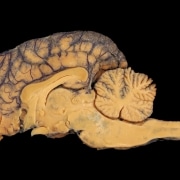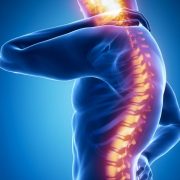Of kyphosis, anxiety, depression and aggression
Many believe that there is a connection between the body and the mind. Some set out to study to what extent that could be the case. Researchers Moslehi, Saiiari and Marashiyan have done just that. With the use of a specific anxiety questionnaire, the Beck Depression Inventory (BDI) as well as the Eysenck Aggression Inventory (EAI), they looked for associations with kyphosis abnormalities.
What was shown is the following:
- There is a relationship between kyphosis angle and hidden as well as manifest anxiety.
- There are positive and significant relations between kyphosis angle and depression.
- Research findings about aggression and angle of kyphosis demonstrated that a positive and significant relation exists.
It’s possible that a depressed person will consider himself or herself weak and incapable and this can affect their muscular system and their posture. We can associate moderate depression to forward shoulders and diminished physical activity. It’s also possible that a person who suffers from flat feet could find himself or herself in a position where the repercussion is a thoracic kyphosis. If that is the case, should we not intervene on the physical body to help the mind?








Leave a Reply